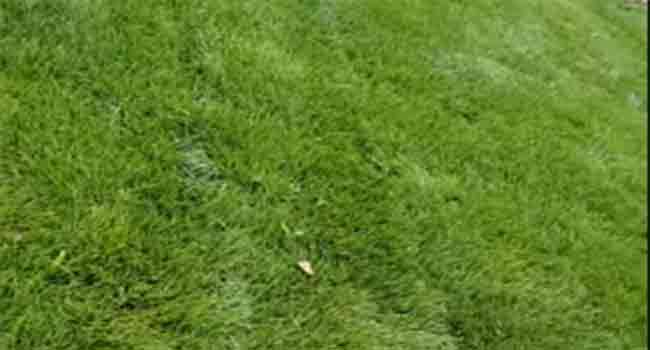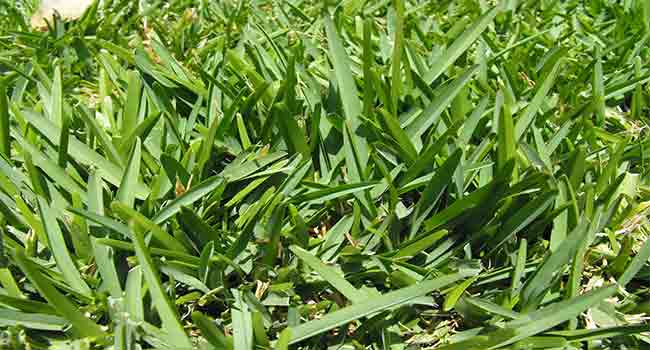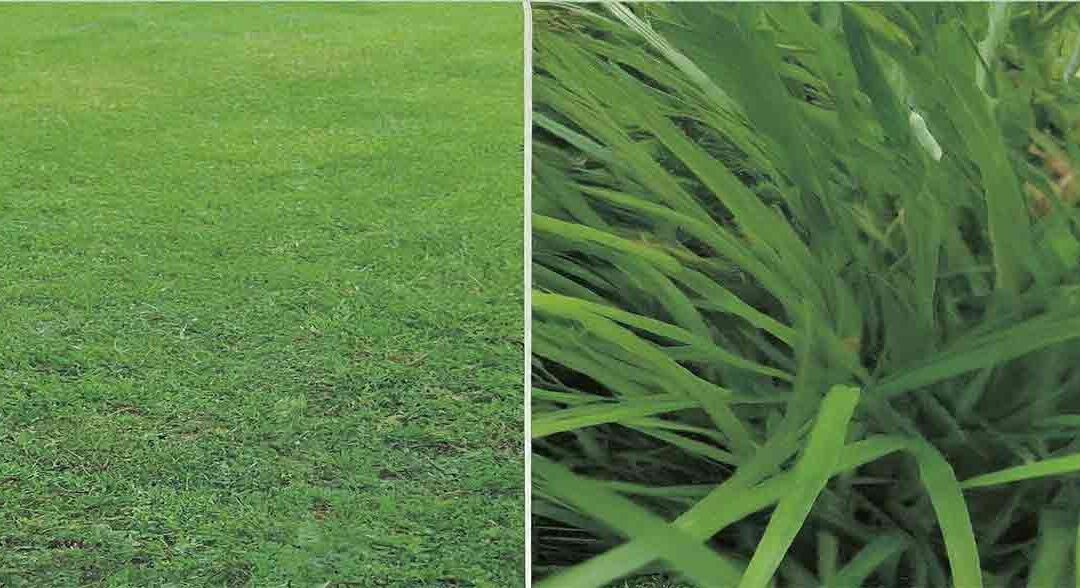Imagine stepping onto a lush, green lawn that beckons you to unwind and enjoy the outdoors. The right grass can transform your yard into a haven of relaxation and beauty, but the choice between Bermuda and St. Augustine grass can be daunting. Both are popular warm-season grasses, each with distinct characteristics that make them better suited for different needs and preferences.
This comprehensive guide will equip you with the knowledge to confidently select the perfect grass for your dream lawn. We’ll delve into appearance, texture, sun and shade tolerance, drought resistance, maintenance, cost, and climate considerations, providing you with a clear comparison to make an informed decision.
Appearance & Texture: A Feast for the Eyes and Feet
| Feature | Bermuda Grass | St. Augustine Grass |
| Blade Type | Fine, dense | Coarse, wide |
| Overall Look | Manicured, uniform, closely-mown | Plush, carpet-like, more casual |
| Color | Varies (light to dark green depending on cultivar) | Distinct blue-green |
| Growth Pattern | Low-growing | Taller growth habit |
| Texture | Soft, dense, smooth | Coarser, spongy feel |
Sun & Shade Tolerance: The Light of Your Lawn’s Life
Sunlight plays a crucial role in the health and growth of your lawn.
| Grass Type | Sunlight Needs | Shade Tolerance |
| Bermuda Grass | Thrives in full sun (6-8+ hours daily) | Struggles in shade – thinning, bare patches |
| St. Augustine Grass | Tolerates partial shade (4-6 hours of sun) | Performs best in full sun for optimal color and density |
Drought Tolerance & Watering Needs: Conserving Our Precious Resource
Water usage is a significant concern for many homeowners. Choose a grass that aligns with your region’s climate and your commitment to water conservation.
| Grass Type | Drought Tolerance | Watering Needs |
| Bermuda Grass | High | Less frequent watering, deep roots |
| St. Augustine Grass | Moderate | More frequent watering, shallow roots |
Wear and Tear Resistance: Will Your Lawn Withstand the Traffic?
The durability of your lawn is essential, especially if you have children, pets, or frequently host outdoor gatherings.
| Grass Type | Wear Tolerance | Ideal For |
| Bermuda Grass | Excellent | High-traffic areas, kids, pets, activities |
| St. Augustine Grass | Moderate | Lawns with less foot traffic |
Maintenance & Care: Investing in Your Lawn’s Longevity
| Aspect | Bermuda Grass | St. Augustine Grass |
| Mowing Frequency | High (due to rapid growth) | Moderate |
| Fertilization | Lower requirements | Higher requirements |
| Disease Susceptibility | Dollar spot, spring dead spot | Brown patch, gray leaf spot, chinch bugs |
| Thatch Buildup | More frequent dethatching needed | Less frequent dethatching needed |
Climate & Soil Suitability: Finding the Right Fit for Your Region
| Factor | Bermuda Grass | St. Augustine Grass |
| USDA Zones | 7-10 | 8-10 |
| Climate | Warm, dry to moderate | Warm, humid |
| Soil Types | Adaptable (tolerates sandy soil) | Sandy, loamy (tolerates some salt) |
Pros and Cons at a Glance: Making an Informed Decision
Let’s summarize the key advantages and disadvantages of Bermuda and St. Augustine grasses to help you make an informed decision:
| Feature | Bermuda Grass | St. Augustine Grass |
| Pros | Drought-tolerant, low water use | Shade tolerant, plush feel, less mowing |
| Cons | Requires more frequent mowing, less shade tolerant | More susceptible to pests & disease, higher water use |
| Ideal Climate | Hot, dry | Warm, humid |
| Best For | High-traffic areas, sunny yards | Shady areas, less traffic, water-abundant regions |

Bermuda
Choosing the Right Grass for YOU: The Final Verdict
You’ve seen the data, now it’s time to personalize it. Consider these key questions:
- Where Do You Live? Your climate and USDA Hardiness Zone play a major role. Bermuda thrives in zones 7-10, while St. Augustine prefers the warmer zones 8-10.
- How Much Sun Does Your Yard Get? Bermuda craves full sun, while St. Augustine can tolerate some shade.
- What’s Your Soil Like? Test your soil to see if it’s sandy, loamy, or clay-heavy. Both grasses prefer well-draining soil, but St. Augustine is more tolerant of salty conditions.
- What Look Do You Desire? Do you envision a manicured, golf-course look (Bermuda) or a plush, inviting carpet (St. Augustine)?
- How Much Traffic Will Your Lawn See? Bermuda is the champion of high-traffic lawns, while St. Augustine is better suited for more relaxed settings.
- What’s Your Maintenance Style? Are you a hands-on lawn enthusiast or prefer a low-maintenance approach? Bermuda requires more frequent mowing, while St. Augustine needs more water and fertilizer.

St. Augustine
FAQ: Your Bermuda vs. St. Augustine Questions Answered
Is Bermuda or St. Augustine grass better for my lawn?
The “best” grass depends on your specific needs and climate. Bermuda thrives in full sun and hot, dry conditions, while St. Augustine tolerates some shade and prefers more humidity. Consider your soil type, budget, and desired level of maintenance before deciding.
Which grass is more drought-tolerant?
Bermuda grass is known for its exceptional drought tolerance due to its deep root system. St. Augustine has moderate drought tolerance but requires more frequent watering, especially during hot, dry spells.
Which grass is better for high-traffic areas?
Bermuda grass is the clear winner when it comes to wear and tear resistance. Its dense growth and quick recovery make it ideal for lawns with children, pets, or frequent activity. St. Augustine is better suited for lawns with less foot traffic.
Which grass requires less maintenance?
While both grasses need regular care, Bermuda grass generally requires more frequent mowing due to its rapid growth. St. Augustine, on the other hand, may need more watering, fertilizer, and pest control.
Which grass is more affordable?
Both Bermuda and St. Augustine grass seed are relatively inexpensive. However, St. Augustine sod typically costs more than Bermuda sod upfront.
Can Bermuda grass grow in shade?
Bermuda grass struggles in shade and may thin out or die back if not exposed to enough sunlight (6-8+ hours daily). St. Augustine has better shade tolerance, but still performs best in full sun.
Is St. Augustine grass salt-tolerant?
Yes, St. Augustine grass has a higher salt tolerance than Bermuda grass, making it a good option for coastal areas.
What are the common pests and diseases for each grass?
Bermuda grass is susceptible to dollar spot, spring dead spot, and fungal diseases. St. Augustine grass is prone to brown patch, gray leaf spot, and chinch bugs.
Can I overseed Bermuda with St. Augustine?
Overseeding Bermuda with St. Augustine is not recommended as they have different growth habits and may not coexist well. It’s best to choose one type and stick with it for a uniform lawn.
What’s the best time to plant Bermuda or St. Augustine grass?
The ideal planting time for both grasses is during the warm growing season when soil temperatures are consistently above 65°F (18°C). This is typically late spring or early summer.
Conclusion
By carefully weighing the factors discussed in this guide and considering your own priorities, you’ll be well-equipped to make an informed decision and select the ideal warm-season grass for your dream lawn. Whether you choose the classic elegance of Bermuda or the plush comfort of St. Augustine, you’ll soon be enjoying a beautiful, healthy outdoor space that enhances your home and lifestyle.
Pro Tip: Remember, a well-maintained lawn, regardless of grass type, is a source of pride and enjoyment. Invest in proper care, and your lawn will reward you with its beauty and vitality for years to come.

